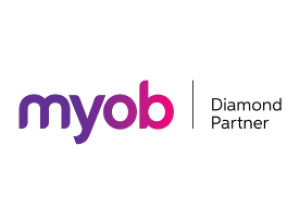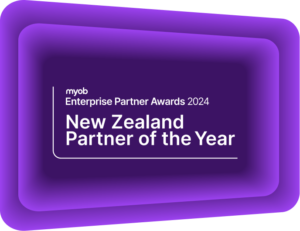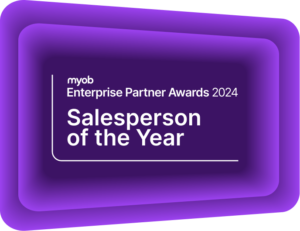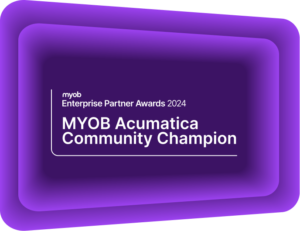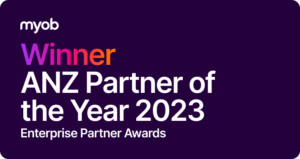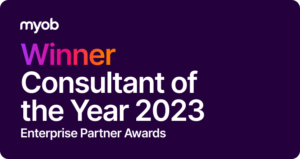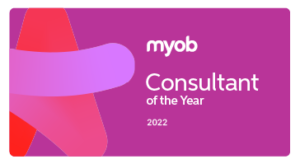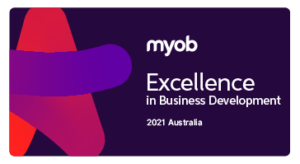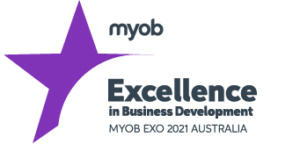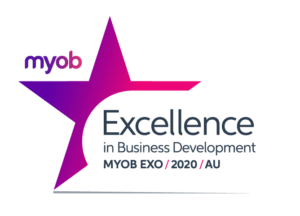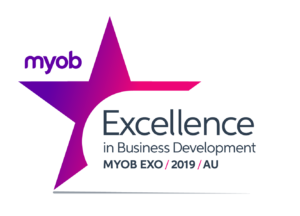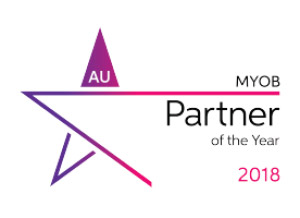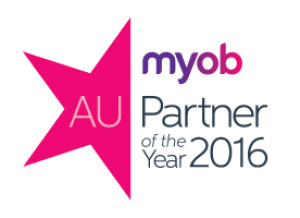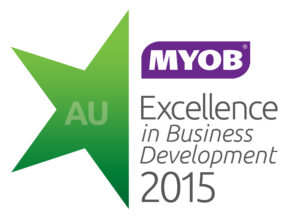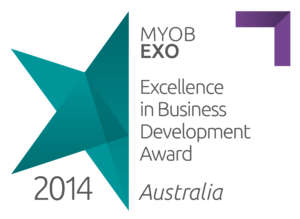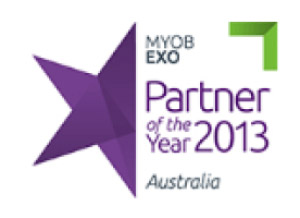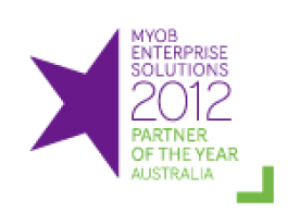Best ERP Software for Logistics
Make the right choice of ERP system for your logistics organisation.An Enterprise Resource Planning (ERP) system is a powerful tool for improving efficiency in Logistics businesses. However, there are many to choose from in the market. The right system must fit your organisation now and support your growth. The wrong system can cause pain and inefficiencies that are costly and challenging to overcome.
Why Logistics Businesses Need ERP
An ERP system is a business management system used by larger, more complex organisations to manage and analyse data from across the organisation. It is the next step of business advancement after an off-the-shelf accounting system. In addition to financial management, an ERP system can manage payroll, tax and compliance, supply chain, production, projects, sales & customers, and field services. It is a complete, connected business management tool.
When logistics businesses grow, they require an ERP system to connect their different databases and overcome the challenges of smaller systems. With an ERP, a logistics company can:
- See data from different departments across the organisation in one place and in real-time,
- Answer complex business questions, identify trends, and respond to changes in the market,
- Streamline the supply chain from order through to sale and distribution with powerful automations,
- Drill into the details of your logistics operations by salesperson, by product, or by customer,
- Accurately calculate landed costs, even across multiple currencies and warehouses,
- Manage vehicles, service scheduling, routing, and delivery performance to reduce cost and improve distribution efficiency,
- Track stock across multiple warehouses and delivery schedules from one connected system.
Must-Have ERP Features for Logistics Businesses
An ERP system plays a critical role in supporting logistics businesses by centralising data, automating workflows, and improving visibility. When selecting your ERP system, keep in mind the must-have features that will support your organisation’s efficiency improvement.
Inventory and Warehouse Management
If you are a logistics business and you are upgrading to an ERP system for its complete business management functionality, then it must support your inventory and warehouse management requirements. An ERP system should provide a centralised view of all stock in the business in real-time, broken down by line item, quantity, warehouse, and availability status.
Supporting efficient warehouse management relies on this information. But you can also use technology to unlock cost savings in logistics, streamline picking and packing, find the best rate for shipping, and process more orders faster.
Supply Chain and Procurement Management
To make the best purchasing decisions and ensure that your inventory budget is invested wisely you need end-to-end visibility of the entire supply chain. An ERP system can automatically generate and send purchase orders to suppliers when stock hits specific, pre-determined thresholds, saving time for your team. Lead time delays are inevitable, but having real-time access to this information lets you better manage customer expectations. An ERP system can support splitting your stock across multiple locations, whether that be receiving separate deliveries from suppliers or internal transfers from a central warehouse.
Financials and Cost Tracking
Connecting sales, customers, inventory, procurement, and distribution together brings significant benefit to your organisation. But what separates an ERP system from a powerful standalone logistics management system is the ability to also connect your financials. ERP systems can track costs in multiple valuation methods and measure profitability by product in real-time. You can instantly answer complex questions about the best-performing stock and most valuable customers by collating sales, inventory, customer, and financial data.
Mobile Access and Cloud Connectivity
eCommerce and mobility are key areas of modern logistics operations. Whether you need online retail or wholesale, the internet and cloud can facilitate faster processing and greater accessibility.
ERP systems can integrate directly with leading eCommerce solutions. This puts stock ordering and buying power in the hands of your customers and eliminates the bottlenecks that come with manual sales orders. Website purchases flow through to the warehouse for immediate pick, pack, and dispatch, and all teams have instant information about purchasing and stock movements.
For your mobile sales managers, warehouse staff, delivery fleet, and field service teams, being able to access the information they need is imperative – whether that be on the road or from deep within the warehouse. A cloud ERP system provides this accessibility and empowers your team with the information they need in the moment they need it.
Reporting and Analytics
Because all data – including both financial and non-financial data – is stored in the same system, you can easily produce reports and analyse trends in real-time. ERP systems bypass the need to manually consolidate data from across different departments, drastically speeding up your ability to make business-critical decisions. Generated reports are updated with new data in real-time, so you only need to build a report once.
Top ERP Software for Logistics
There are many viable options available to larger, more complex logistics organisations across Australia and New Zealand. It is important to weigh up the strengths and weaknesses before selecting your new ERP system. A trusted software partner can evaluate your business and your workflows to recommend a best-fit system to support your long-term goals.
MYOB Acumatica
MYOB Acumatica is the #1 ERP system chosen by Australian and New Zealand organisations (iStart Buyer’s Guide 2025-26), making it a leading choice for logistics businesses. MYOB Acumatica is a modular cloud-based ERP system, with a dedicated inventory management module.
MYOB Acumatica can:
- Support multiple stock costing models, including First In First Out (FIFO), for a more realistic representation of your stock values,
- Track SKUs across multiple warehouses and bin locations,
- Connect your teams together with the information they need for their role, without manual data manipulation or reconciliation,
- Accurately calculate landed costs by factoring in brokerage and logistics fees, shipping costs, customs, duties, tariffs, taxes, insurance, and handling fees,
- Track costs across multiple currencies, eliminating the manual work in managing exchange rates,
- Real-time visual dashboard reports are available to individual logins, so your team sees the important information for their role,
- Integrate with a range of best-of-breed third-party applications to improve logistics efficiency, such as eveXso, Netstock, and OpenFreight.
MYOB Acumatica has an advanced Distribution Requirement Planning suite to improve your ability to cater to customer demand and avoid stock outs. It puts you in complete control of your logistics and inventory management. DRP is forecast-driven, using the data you have already collected to project stock requirements into the future. DRP anticipates future demand across locations and generates supply suggestions, such as transfer orders from other warehouses or purchase orders (POs), before shortages occur.

MYOB Acumatica Inventory and Distribution eBook
Download nowMYOB Exo Business
MYOB Exo Business is a reliable and established on-premise ERP system for Australian and New Zealand businesses. MYOB Exo was developed in the early 2000s. Businesses using MYOB Exo can feel confident that it remains a leading option in the logistics industry, despite its length in the market. Inventory-based companies naturally gravitate towards MYOB Exo due to its robust stock control and customisability, as well as the deep integration between the Inventory and Finance modules.
MYOB Exo can:
- Automate manual sales order processes in the background, lowering system load and saving time for your team,
- Integrate with a range of best-of-breed third-party applications to improve logistics efficiency, such as eveXso, Netstock, and OpenFreight.
- Accurately calculate landed costs by factoring in brokerage and logistics fees, shipping costs, customs, duties, tariffs, taxes, insurance, and handling fees,
- Track costs across multiple currencies, eliminating the manual work in managing exchange rates,
- Track expiry dates, variations and wastage, and product batches.
NetSuite
NetSuite is a cloud-based ERP system developed by the Oracle Corporation, headquartered in Texas, USA. The platform has a focus on finance, production, supply chain, procurement, and business intelligence; however, the top-performing industries are Technology & IT Services, Computer Software, Retail, and Financial Services.
NetSuite can:
- Track costs across multiple currencies
- Integrate ERP, CRM (Customer Relationship Management), and eCommerce capabilities to form one connected system,
- Display visual dashboards for business intelligence and analysis,
- Plan, budget, and forecast within the system.
Microsoft Dynamics 365 Business Central
Microsoft Dynamics Business Central is a cloud-native SaaS ERP developed by Microsoft. It is one of several ERPs supported by Microsoft, and is built for the needs of midmarket organisations. As a Microsoft product, one of its strengths is the ability to integrate with Microsoft’s wider suite, including Office 365.
Microsoft Dynamics 365 Business Central can:
- Track costs across multiple currencies
- Display visual dashboards for business intelligence and analysis,
- Plan, budget, and forecast within the system.
- Support multiple stock costing models, including First In First Out (FIFO), for a more realistic representation of your stock values,
- Track SKUs across multiple warehouses and bin locations,
Odoo
Odoo is an open-source ERP and CRM system based in Belgium and originally developed in 2005. It operates with two different versions, the free “Community” version and the paid “Enterprise” version. Odoo can be deployed on-premise or via the cloud.
Odoo can:
- Integrate CRM, eCommerce, accounting, inventory, point of sale, and project management into one system,
- Integrate with a range of best-of-breed third-party applications thanks to its open-source development model,
- Support a customisable eCommerce storefront including POS, returns & refunds, product catalogue, and promotions and discounts,
- Update reports in real-time with live data, however, report customisability is limited compared to other options.
The advantages of a local system
MYOB is an ANZ specialist, and MYOB Acumatica has been built to reflect this. Other software vendors are generalists, building their systems to cater generally to the global market. SAP Business One, NetSuite, and Microsoft Dynamics 365 are all developed overseas and for overseas markets. MYOB Acumatica has been specifically built to cater for the unique needs of Australian and New Zealand organisations.
- Business Activity Statement (BAS) support
- Goods and Services Tax (GST) compliance
- Offshore systems may only be able to handle cash or accrual GST remittance, or not be properly set up to allow a switch.
- Very few overseas payroll systems can handle the complexities of Australian and New Zealand payroll, especially the interaction between payroll, awards, and timesheets. Australia and New Zealand also have different payroll requirements, so even local systems have different instances depending on the country in which staff are paid.
- Local software vendors are involved in the draft phase of new legislation and are given plenty of forewarning to update their systems. Offshore vendors will be playing catch-up when it comes time to update.
Partner with Kilimanjaro Consulting for your Logistics ERP Implementation
Kilimanjaro Consulting is a premier ERP implementation partner for larger, more complex organisations across Australia and New Zealand. We follow a structured ERP implementation methodology that eliminates risk and ensures a successful outcome.
We are a team of farmers, not hunters. We focus on building strong, long-term relationships with our clients and guiding them safely up the technology mountain. Our goal is to improve efficiency for our clients through the clever use of proven, innovative, and creative technology.
We understand the logistics industry and have a proven track record in successful implementations. We have a long history with MYOB Exo and how it improves efficiency for logistics organisations. We are also specialists in MYOB Acumatica and can evaluate its functionality against your requirements to help you choose the best ERP to improve efficiency.

Making your way through the ERP Selection process eBook
Download nowNext Steps
Talk to our team to evaluate your requirements and how ERP software for logistics can improve efficiency in your organisation.
Email sales@kilimanjaro-consulting.com or call 1300 857 464 (AU) or 0800 436 774 (NZ) to get in touch.

